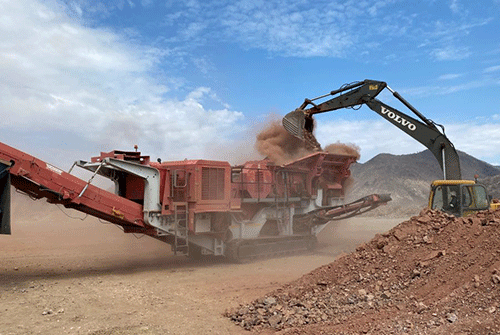Mines minister Tom Alweendo believes Namibia is in an opportune position to leverage her natural resources such as critical minerals to enhance economic complexity.
As such, the minister said it is Namibia’s objective to establish a critical mineral sector to create jobs throughout the entire value chain, starting with exploration, mining, processing and manufacturing.
Alweendo was speaking at a public discussion organised by the Economic Association of Namibia under the theme, ‘Optimising Economic Returns: The Role of Critical Minerals’. Wednesday’s discussion was conducted in partnership with FNB Namibia and the Hanns Seidel Foundation.
“We recognise that achieving our vision will be challenging. We will need to attract the right investment into our country, and we will need to create a critical minerals sector that is globally competitive. It is for this reason that over the last two years, we have stepped up our international engagements in creating an awareness of Namibia as an attractive investment destination.
Our efforts so far have yielded good results and we will continue to intensify our global outreach,” said Alweendo. He added the fact that Namibia is endowed with many of
these critical minerals must count for something.
“While we have noted an increase in the global demand for critical minerals, we are also aware that the global supply is faced with some risks. For example, the global market for some of the critical minerals is not as well- established, unlike the traditional commodity markets such as for gold or diamonds,” he added.
The minister noted that his ministry has begun looking at whether the current known deposits of critical minerals are nearly enough to satisfy global demand, or whether the known technology to extract these minerals is as efficient to satisfy the increasing global demand. He said some of the critical minerals could also assist Namibia in reimagining its economy through green industrialisation.
“Our green hydrogen strategy is a bold initiative, and we are convinced it is a critical step in shifting toward a green and modern global economy. For example, we are studying how the clean molecules we will produce can be used to add value to our iron ore, or indeed be used to produce fertiliser for the region,” said the minister.
Last year, Cabinet resolved to prohibit the exportation of Namibia’s critical minerals in raw form in a bid to create more local jobs through local value-addition.
This decision applies to materials such as unprocessed crushed lithium, graphite, cobalt, manganese and rare earth elements. Cabinet, nonetheless, approved that smaller quantities of these minerals may be exported at the direction of the mines and energy ministry.
Local value-addition remains a challenge for Namibia, where the majority of its natural resources are still being exported in raw or minimally-processed forms. This, pundits argue, continues to create valuable jobs in other countries. Meanwhile, Namibia has received offers to help establish a mineral beneficiation sector, amid increased global competition for rare earth minerals, driven particularly by an expanding electric vehicle (EV) industry. -mndjavera@nepc.com.na


